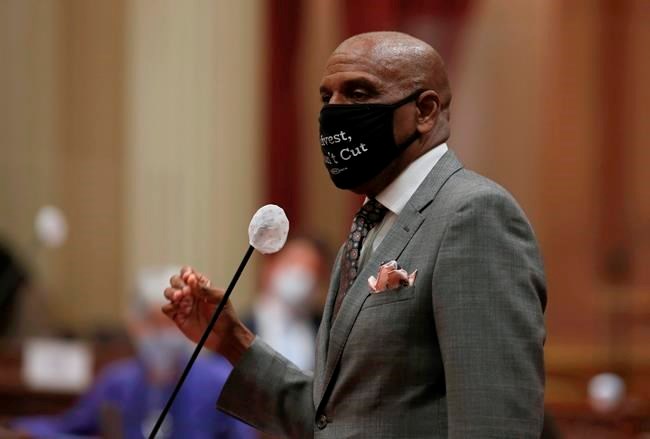SACRAMENTO, Calif. — California's 1996 ban on affirmative action policies will be tested at ballot box in November as voters will decide whether governments and public colleges and universities can consider race in their hiring and admissions decisions — all against the backdrop of a presidential election and cultural upheaval over racial injustice.
California has banned affirmative action since 1996, when 55% of voters approved a
Wednesday, the state Senate voted 30-10 to repeal that amendment, although voters must approve in November before it can become law.
The 1996 amendment came at a time when Republicans ruled the state and was just two years removed from a separate voter-approved amendment — eventually overturned by the courts — that would have banned immigrants living in the country illegally form using public schools and other state services. Seven other states eventually followed California's lead on banning affirmative action policies: Washington, Florida, Michigan, Nebraska, Arizona, New Hampshire and Oklahoma.
Since then, Hispanics surpassed whites in 2015 as California's largest ethnic group and voters have booted Republicans from statewide offices and relegated them to inconsequential numbers in the state Legislature. But critics say disparities still exist in government contracting and college admissions, arguing the ban allows racial biases to continue without programs and policies designed to correct it.
That includes the offices of state lawmakers, according to state Sen. Steven Bradford, who called out some of his white colleagues who he says “have never hired a black person, and probably never will.”
“We’re race conscious in everything we do,” said Bradford, who is Black. “Quit lying to yourselves and saying race is not a factor.”
Republicans scoffed at repealing a law that they say bans racial discrimination, with Republican Sen. Melissa Melendez saying she believes “this is the least racist country on the planet" — earning a rare public rebuke from fellow Sen. Connie Leyva, a Democrat from Chino.
But the most vocal and organized opposition has come from the state's Asian community, where some have said they fear allowing race to be considered in college admissions will hurt them at some of the state's elite public universities where Asian Americans make up a higher percentage of the
"The answer to discrimination is not more discrimination,” said state Sen. Ling Ling Chang, a Republican who is of Taiwanese descent.
The ban has survived multiple legal challenges and legislative efforts to change or repeal it. But this year, supporters were buoyed by the nationwide protests over racial injustice stemming from the killing of George Floyd in Minneapolis. The movement has revived multiple bills in California and elsewhere aimed at eliminating racial disparities.
The state Assembly has passed a bill that would create a committee to study giving reparations to Black people because of slavery. And on Wednesday, the state Senate approved another proposed
Some Asian American groups are already preparing a campaign against lifting the ban on affirmative action. Crystal Lu, president of the Silicon Valley Chinese Association, said about 80 organizations have come together and raised about $130,000 within 24 hours of launching their fundraising campaign.
“If the ability to be judged by your merit and not by your race is taken away, the fundamental attraction of this country is eroded,” she said. “It's that fear of being judged by where you are from.”
The Legislative Asian Pacific Islander Caucus officially endorsed the repeal earlier this week, adding that more than 100 organizations and community leaders “representing hundreds of thousands of Asian Pacific Islanders” support ending the ban on affirmative action.
“Removing the ban will allow for more equal opportunities in public contracting, public employment, and public education for all, including Asian Americans,” said state Assemblyman David Chiu, chair of the California Asia Pacific Islander Legislative Caucus.
Adam Beam, The Associated Press


